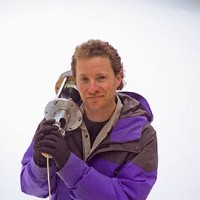Brent Wolfe

Professor
Faculty of Science
Geography and Environmental Studies
Waterloo, Ontario
bwolfe@wlu.ca
Office:
(548) 889-4944
Expert In
Media Relations
Aonghus Kealy
Communications and Media Relations Officer
akealy@wlu.ca
(548) 889-4855
Click to Expand >>
Communications and Media Relations Officer
akealy@wlu.ca
(548) 889-4855
Click to Expand >>
Media Relations
Aonghus Kealy
Communications and Media Relations Officer
akealy@wlu.ca
(548) 889-4855
Lori Chalmers Morrison
Director: Integrated Communications
lchalmersmorrison@wlu.ca
(548) 889-4857
Vanessa Barrasa
Director: Communications & Issues Management
vbarrasa@wlu.ca
(548) 889-3812
Brantford Campus:
Beth Gurney
Director, Strategic Communications and Community Engagement
bgurney@wlu.ca
(548) 889-4199
Click to Shrink <<
Communications and Media Relations Officer
akealy@wlu.ca
(548) 889-4855
Lori Chalmers Morrison
Director: Integrated Communications
lchalmersmorrison@wlu.ca
(548) 889-4857
Vanessa Barrasa
Director: Communications & Issues Management
vbarrasa@wlu.ca
(548) 889-3812
Brantford Campus:
Beth Gurney
Director, Strategic Communications and Community Engagement
bgurney@wlu.ca
(548) 889-4199
Click to Shrink <<
Bio/Research
I received my PhD in Earth Sciences from the University of Waterloo in 1997 and my MSc in Geological Sciences from the University of Manitoba in 1993. Prior to joining Laurier in 2002, I was a Natural Sciences and Engineering Research Council postdoctoral fellow and research associate in earth sc...
Click to Expand >>
Click to Expand >>
Bio/Research
I received my PhD in Earth Sciences from the University of Waterloo in 1997 and my MSc in Geological Sciences from the University of Manitoba in 1993. Prior to joining Laurier in 2002, I was a Natural Sciences and Engineering Research Council postdoctoral fellow and research associate in earth sciences at the University of Waterloo.
In partnership with organizations that include northern First Nation communities, educational institutions, government agencies and industry, my research program (formerly supported by the Natural Sciences and Engineering Research Council Northern Research Chair Program in Northern Hydroecology from 2002-2012) targets critical water-related issues in the Peace-Athabasca-Slave River Corridor (Alberta-Northwest Territories), the Old Crow Flats (Yukon) and the Hudson Bay Lowlands (Manitoba).
My research focuses on assessing the impact of changing climatic conditions and industrial development on northern boreal-tundra freshwater landscapes in Canada. Water in these regions plays a central role in maintaining the ecological integrity of ecosystems, economic development and prosperity, and traditional use of the land and its resources by indigenous communities. However, insufficient knowledge of hydrological and ecological variability over space and time has historically impeded informed stewardship of water resources in these remote landscapes.
To fill this knowledge gap, my research integrates contemporary hydroecological studies spearheaded by the use of water isotope tracers with quantitative long-term (past centuries to millennia) records of hydroecological changes derived from analyses of lake sediment cores using state-of-the-art analytical techniques. The spatial and temporal insight gained from these approaches has been critical to inform stewardship of these important landscapes.
Click to Shrink <<
In partnership with organizations that include northern First Nation communities, educational institutions, government agencies and industry, my research program (formerly supported by the Natural Sciences and Engineering Research Council Northern Research Chair Program in Northern Hydroecology from 2002-2012) targets critical water-related issues in the Peace-Athabasca-Slave River Corridor (Alberta-Northwest Territories), the Old Crow Flats (Yukon) and the Hudson Bay Lowlands (Manitoba).
My research focuses on assessing the impact of changing climatic conditions and industrial development on northern boreal-tundra freshwater landscapes in Canada. Water in these regions plays a central role in maintaining the ecological integrity of ecosystems, economic development and prosperity, and traditional use of the land and its resources by indigenous communities. However, insufficient knowledge of hydrological and ecological variability over space and time has historically impeded informed stewardship of water resources in these remote landscapes.
To fill this knowledge gap, my research integrates contemporary hydroecological studies spearheaded by the use of water isotope tracers with quantitative long-term (past centuries to millennia) records of hydroecological changes derived from analyses of lake sediment cores using state-of-the-art analytical techniques. The spatial and temporal insight gained from these approaches has been critical to inform stewardship of these important landscapes.
Click to Shrink <<